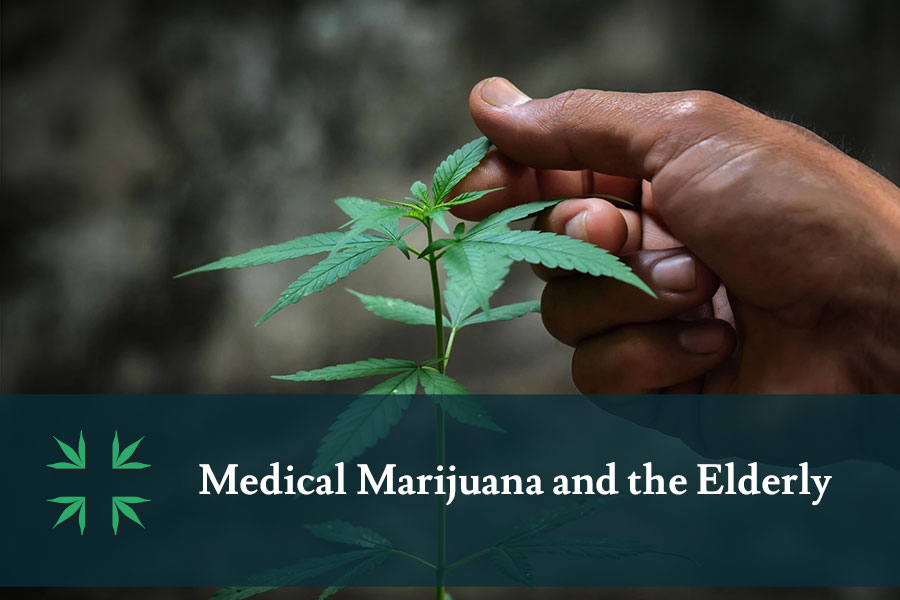As more and more states have embraced marijuana legalization, there’s been a striking increase in self-reported cannabis use among the elderly. According to a study in the Journal of the American Medical Association, in 2006 and 2007 an estimated 0.4 percent of adults aged 65 and older said they’d used marijuana in the past year. This jumped to 2.9 percent in 2015 and 2016. By 2018, as many as 4.2 percent of elderly people said they’d used cannabis in the past year.
What’s driving this increase?
There’s probably a host of reasons for this, but chief among them is reduced social stigma surrounding marijuana. Ten years ago only a handful of states had legalized cannabis for medical purposes, and public support for legalization hovered at or below 50 percent. As of March 2021, 16 states had legalized recreational marijuana while almost all states allow some form of medical cannabis, and the measure enjoys overwhelming public support. Polling by Quinnipiac in 2017 found 94 percent of respondents favored allowing access to cannabis for patients at the recommendation of a doctor. Gallup has reported for the past several years that support for legalization in the US has a two-thirds majority, while 86 percent of respondents cite marijuana’s therapeutic value as the most important reason why cannabis should be legalized. Medical marijuana’s mainstream status is well demonstrated by the embrace of the measure by the American Association of Retired Persons (AARP). In 2019, the 38 million member association came out in support of medical cannabis in states that had legalized it.
What are elderly patients using medical marijuana for?
Older adults use cannabis for many of the same conditions as young people. That is, anxiety, insomnia, neuropathy and chronic pain. As well as these, elderly patients use cannabis to treat conditions more commonly associated with old age. Some studies show promising results regarding marijuana’s efficacy at treating age-related conditions such as Alzheimer’s disease and glaucoma but, as is invariably the case when it comes to cannabis, more research is required.
Are there risks for elderly people using medical cannabis?
The need for more research is especially relevant when it comes to our understanding of the potential risks facing older adults who use cannabis. All medications have side-effects and marijuana is no different but they are, as yet, poorly understood. For instance, while there’s no strong evidence to associate elderly marijuana use with coronary complications, cannabis is known to increase heart rate and blood pressure. Some physicians suspect that if an older adult with an underlying coronary disease were to take a particularly strong dose of marijuana, this could lead to a coronary syndrome or an arrhythmia (irregular heartbeat) induced by an anxiety attack.
Another potential complication that could arise among elderly people who use cannabis concerns the plant’s interactions with other medications the patient may be on. THC and CBD are the two main active components of marijuana, but it contains a further 600 compounds. Any one of these could increase or decrease the blood levels of other drugs in a patient’s system and thus affect outcomes. CBD, for instance, is especially prone to amplifying the effects of other drugs in a person’s body by inhibiting the molecules needed to break down and flush out medications. Anti-seizure medications and blood thinners, in particular, are considered a possible risk when used in conjunction with marijuana. It’s also important for a physician to know if an elderly patient is using cannabis when preparing them for surgery, as they would likely adjust anaesthetic drugs and probably also postoperative pain management medications.
Another consideration for elderly marijuana users concerns the plant’s psychoactivity. Some physicians worry cannabis use among elderly patients could lead to more falls as its intoxicating effect weakens balance and slows reaction time. Others are concerned for patients at risk of dementia who may become confused and then develop anxiety after using marijuana. That said, there’s research that suggests THC – the psychoactive compound in cannabis – could inhibit the onset of dementia. Such research, however, is in its infancy.
Similarly, there is a growing body of evidence indicating marijuana use among elderly people can actually improve cognitive functioning. This is thought to be a consequence of improved sleep and pain management. This chimes with another study that found medical marijuana use among older adults is strongly associated with self-reported improvements in health-related quality of life.
How to minimize the risks and maximize the benefits?
What’s crucial in administering medical marijuana is to ensure doses and strains are tailored to the needs of the patients, as is true with all medications. The ability to buy medical marijuana at a dispensary after a consulting with a doctor means there’s now far greater control and understanding over possible cannabis treatments, such as low THC strains. Still, a lot more research is required to fully understand the positive and negative effects of cannabis use in older adults for a variety of conditions. In particular, elderly patients with cardiac issues, who take other medications or experience cognitive difficulties should consult with a doctor before using medical cannabis.

Leave A Comment